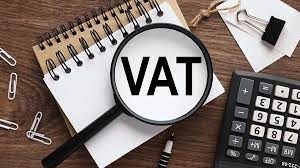News

VAT on Real Estate .. Taking the disastrous route
23 February 2022
Are we going to shoot ourselves on the foot, in this case? I will refer to the history of Value Added Tax (VAT) on residential properties in brief. VAT began to be imposed on homes in 2011 and for homes of up to 200 sqm a reduced rate was offered.
If the house was between 200 sqm and 275 sqm, then proportionally the first 200 sqm benefited from the reduced rate, while houses over 200 sqm paid the normal rate. If a house was more than 275 sqm, then the normal rate was imposed on the entire purchase/construction cost of the property.
In 2016, Parliament differentiated the framework, which became simpler, and was as follows: Up to 200 sqm, reduced rate and proportionally normal rate for all square meters over 200. We clarify that there was no maximum area of a property that did not benefit from the reduced rate.
In July 2021, we received an email from the European Union (EU) telling us that the benefit of the reduced rate has been given to all those who buy housing and that was not the EU’s goal, as they see the reduced rate as a social benefit. We were also told that the average size of Cypriot flats/houses is 141 sqm., implying that the limit of 200 sqm is high to enjoy the reduced rate. Of course, until January 2021 and while the EU was aware of the provisions of our legislation, it did not have any problem with it, giving a relevant reply to a Cypriot MEP who asked a relevant question in the European Parliament.
Foreign investors
Perhaps the EU, feeling that it had wronged us with the 2013 haircut of bank deposits and the economic recession that followed, wanted to help the Cypriot economy grow, thus allowing both wealthy Cypriots and foreign investors to take advantage of this incentive. Because no one can guarantee us that with an increased VAT rate and consequently increased costs we would attract the foreign buyer to Cyprus. Let me remind you that there are many European countries that offer passport schemes through real estate investments to attract foreign investors. Unfortunately, we are not alone, and we are not the only smart ones.
The fact that the EU allows us to offer this social benefit is not bad to use as an economic tool to increase state revenues following from more property sales. It is known that the increase of tax rates beyond a certain limit, leads to reduced sales and tax collection. I believe that the increase of tax rates to 19%, will lead many to reconsider their potential investment. The state collects many taxes from sales of new real estate in addition to VAT, such as taxes on employees’ earnings, taxes on profits of contractors, development companies and real estate agents, on fuel used in industry, etc. I estimate that the state with a reduced rate of 5% VAT collects about 20%-25% in taxes, fees, etc., from the cost/sale price of the property.
Unfortunately, the government, with the greatest ease, initially suggested that we immediately adopt the EU proposals, i.e., a reduction of the surface areas entitled to the reduced rate right away. I wonder if the Finance Ministry has any understanding of market conditions. Do they realise how many couples would have to tear down their dreams, since with their proposal, (the immediate adoption of the measure), years of planning and significant expenses would be wasted? - see architectural plans, land purchase, bank loans, etc. At the same time, many developers would be destroyed since the units that were planned and are in various stages of development would remain unavailable, pushing them to financial disaster and more non-performing loans.
Transition period
Following pressure from the political parties, it appears that the Ministry has made a shift allowing for a transitional period, which is also unrealistic. That is, their suggestion is to give a time frame of a few months where all the sales contracts submitted to the Land Registry to be subject to the current handling. That is, in an apartment building 2 identical apartments to receive different VAT treatment since one will be sold before the end of the period and the other after; The other is more likely not to sell at all with the disastrous results I described above. The most sensible approach for all market participants is to give a period of some months to apply for planning permits. All subsequent applications would then be handled under the new regime.
Some political parties, perhaps due to philosophical reasons, choose to ignore the financial consequences of the abolition of reduced VAT on larger or more expensive properties. They focus on the social aspect of the issue and want only a small portion of our fellow citizens to benefit. They do not realise that sales/construction of real estate will decrease and there will be many builders in unemployment and many entrepreneurs in bankruptcy. Anyway, even poor people can strive of a comfortable apartment or a comfortable house. Do not deprive them of this perspective.
In conclusion, a more targeted social policy in the VAT of new residential real estate will cause a loss of revenue for the state and will make it increasingly difficult to implement other social policy measures.
We all know that the construction industry is among the 3 big pillars of our economy, next to tourism and services. This sector is already plagued by increased construction costs due to rising prices for building materials. Incentives given by the state to acquire a first home, (interest rate subsidy), have wrongly stopped, as far as we are concerned. The icing on the cake will now come with the increased VAT.

Written by: George Mouskides
FOX General Director
